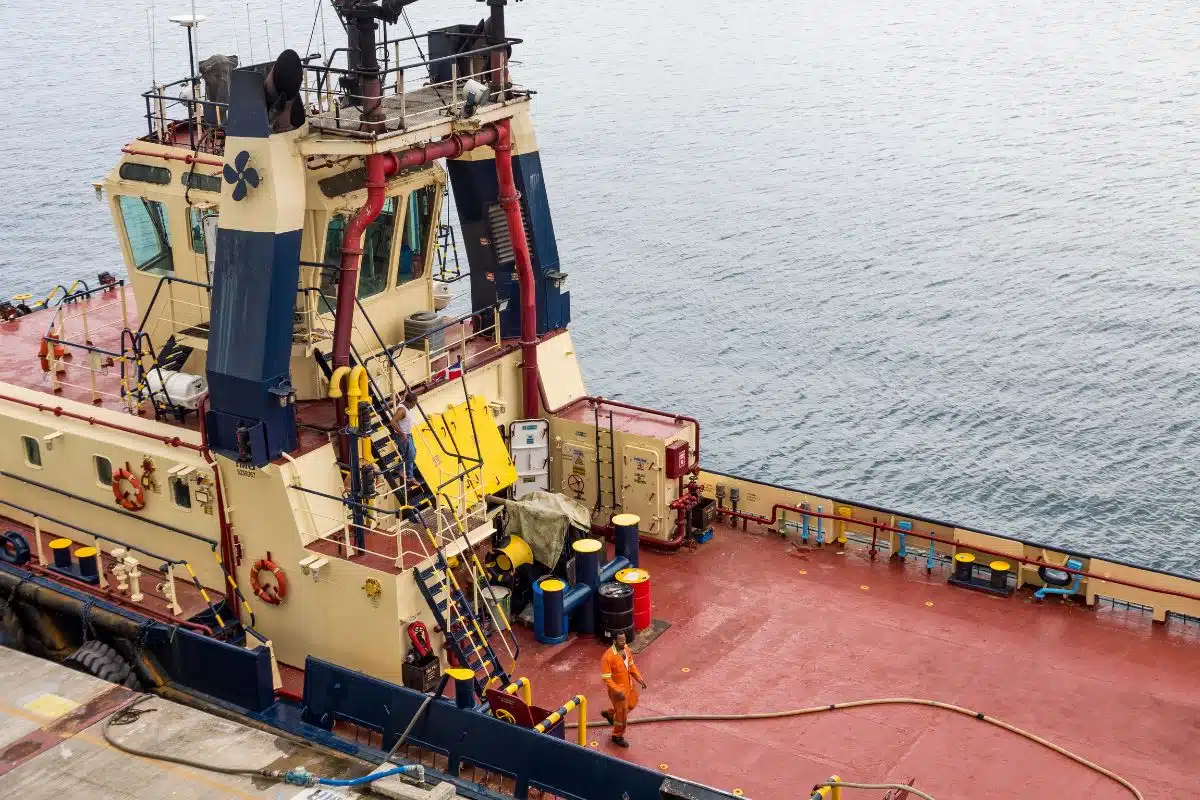When most of us go to the doctor for any illness or injury, our first instinct is to reach for our insurance card to help cover it. But for a maritime worker, using health insurance to pay for medical treatment after an on-the-job injury could be a big mistake.

A Maritime Workers’ Rights After an On-the-Job Accident
Maritime accidents can result in serious, even fatal injuries. Injured workers often worry about a lack of resources to pay their medical expenses after a work accident, especially if they are unable to return to work because of the injuries.
It’s important to know that these medical bills should not be the worker’s problem to deal with — they should be the company’s problem. Any medical treatment for a maritime work injury should be paid for by your company or its insurance company directly. This is especially true if the accident resulted from an act of negligence on the part of a co-worker or employer.
Maritime workers who have been injured while working on or near the water have many rights and protection under maritime law. These include:
What if Your Employer Wants You to See a Company Doctor?
If you’ve been injured at work, your maritime employer will probably ask you to see a company doctor. The problem is, this company doctor probably doesn’t have your best interests in mind when they examine you. Company doctors often:

The right to medical treatment also includes the right to choose your own doctor. You don’t have to be examined or treated by a company doctor and an employer can’t deny your claim because you refuse to do so.
The small caveat to this is that you should not refuse treatment at the time of the accident if no other immediate care is available. However, you should follow up with a provider of your choosing as soon as possible.
Why You Shouldn’t Use Your Health Insurance to Pay For Treatment After a Maritime Injury
You may think you can avoid the hassles of dealing with your employer and their insurance provider by filing a claim with your own health insurance provider. Here are some reasons why you should not do that:
Any medical treatment or care for a maritime work injury should be paid by your employer’s insurance policy and not yours. If your employer expects you to pay for your medical treatment out of your own pocket, speak to an attorney.
Maintenance and Cure Benefits
For Jones Act seamen, maintenance and cure are benefits similar to state worker’s compensation benefits. “Maintenance” refers to a seaman’s living expenses (food, rent, utilities, etc.). “Cure” covers the injured worker’s medical expenses (doctor visits, hospitalization, medication, etc.).
Maintenance and cure is a no-fault system. This means an employer is required to pay benefits to an injured seaman regardless of who was at fault for their injuries. An employer is required to pay maintenance and cure until the injured worker achieves maximum medical improvement. Maximum medical improvement is the point at which an injured worker has recovered as much as possible and further medical treatment will not improve their condition.
It’s important to remember that maintenance and cure benefits are separate from compensation for lost wages, pain, suffering, or other damages that may be recovered from a maritime accident lawsuit. If the injury was caused by the negligence of the shipowner or the ship’s crew, you may be entitled to compensation for these damages under the Jones Act and other maritime laws.
Speak to a New Orleans Maritime Attorney Today
If an employer has been trying to use health insurance or otherwise get you to pay for your medical treatment for an on-the-job maritime injury, contact the law firm of Lambert Zainey Smith & Soso without delay. Our team of New Orleans maritime injury attorneys has been protecting the rights of injured maritime workers for nearly 50 years. As one of the top maritime injury law firms in the country, we’ve recovered over $1 billion in settlements for our clients (who include victims of the Arco explosion and drillship Seacrest capsize).
You can contact the law offices of Lambert Zainey through our website or call us at (800) 521-1750 to schedule a free initial consultation with an experienced maritime attorney.







